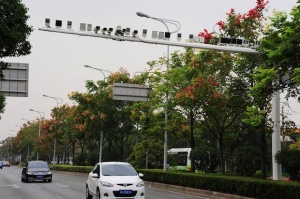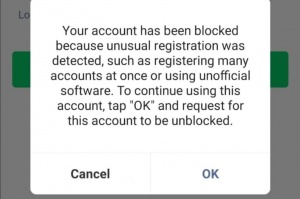Privacy in the China
Privacy means the ability of an individual or group to hide themselves or their personal information. People protect their own privacy, so others can't use it against them. To each individual, protecting personal privacy has already become the basic right. Especially as the internet and informational technology so quickly, people have started to take online privacy more seriously than before. For example, nowadays, most emails and websites are encrypted; the most popular browsers are sending encrypted information through Https, and anonymizing networks like I2P are becoming more and more popular. Those are all very useful tool in order to protect our privacy in modern society. However, in China, it seems people don't have the right to privacy when they are facing the government. The Chinese government has the right to inspect most private information for each individual, and those inspections can exist anywhere, including daily commuting, online communication, and entertainment, etc. Besides, as the informational technologies become more advanced, the Chinese government is now using machine learning to better regulate behaviors and therefore has caused more privacy violation to the people in China.
Contents
Traffic camera with computer vision technology
Computer vision is the technology that deals with how computers can understand images and videos from high-level. Furthermore, it means computers can substitute human to find and track the matched target in images or videos.
In China, computer vision has been applied in the traffic camera system, to better regulate and control the traffic. This new type of camera system can not only recognize people in the car (mainly used for capturing criminals) but also tell whether the driver is using a cellphone or not wearing a seatbelt, etc. Undeniably, in most cases, this new type of camera system can better regulate the traffic, fewer people break traffic rules, and it would definitely help the police better maintaining the social order. However, every coin has two sides, and nowadays, those traffic cameras are so widely used that each intersection has one of them, and people have very limited privacy while sitting in the car.
Camera system in school
In 2018, some high schools in China have started to apply computer vision technology in their camera system, for security and to better regulate the students' behavior. Those cameras are deployed in each corridor and each classroom, to find out students' absence and to supervise each class. According to Guo Yuzhuo, a high school biology teacher in Beijing, the system is able to scan through the facial expressions of all students in the classroom and tell whether they are paying attention or doing any other unrelated stuff. After the class, the system generates a report for each individual in the classroom, so she knows how the students spend their time in the 45 minutes.
So far, this type of technology is still in the experimental stage, but consider there's a potential that this type of technology could be applied in other fields, not just the school, but all corners of people's daily life, then there's no privacy ever after.
Machine learning for speech regulation
In China, the constitution law confirms that each individual has the freedom of speech, but meanwhile, it states, "while the people exercise this freedom, they can't cause any public chaos, they can't break any laws or cause damages to the society and the country".
In order to better regulate the speech on the internet and protect the social order, the Chinese government has widely used machines to surveil people's behaviors, all data on every website server, and every published speech and article. By doing so, the internet speed in China is severely slowed down, since the surveillance algorithm is currently running everywhere in China. But most importantly, the people in China has completely lost their privacy on the internet because all behaviors through the Chinese DNS are censored. On September 9th, 2013, the Chinese Supreme People's Court has announced a new law that, if the online information is used to slander others, and it's clicked or viewed for more than 5,000 times, or reposted for more than 500 times, it shall be considered a defamation crime.
See Also
References


